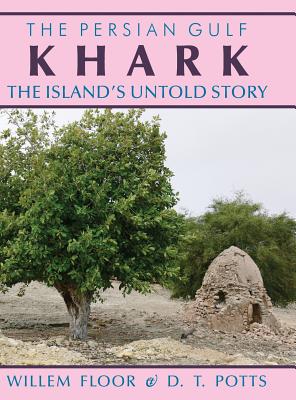

 Mage Publishers
Mage Publishers
Khark: The Island's Untold History


Key Metrics
- Willem M Floor
- Mage Publishers
- Hardcover
- 9781933823904
- 11 X 8.5 X 0.56 inches
- 1.88 pounds
- History > Middle East - Iran
- English
 Secure Transaction
Secure TransactionBook Description
The island of Khark was an important link in Persian Gulf navigation, supplying passing ships with water, victuals, and pilots for ships sailing to and from Basra. This was why the Arabs called Khark the Mother of Skippers (Umm al-Rubbaniyan). Through the ages, Khark has also been a place of pilgrimage: in Sasanian times, due to the presence of an early Christian church and monastery, and in Islamic times, because of the presence of the tomb of Mohammad al-Hanafiyya.
In the eighteenth century, the Dutch made the island their center of trade in the Persian Gulf, and by the nineteenth century the island was dubbed the most important strategic point in the Persian Gulf, reason why the British occupied it twice. Although by 1900 the island had lost its strategic importance, it acquired it again after the 1950s, when the National Iranian Oil Company decided to make Khark its main terminal for the export of crude oil. Later, chemical factories were added to the island's economic make-up. As a result, Khark's name is now better known around the world than it was ever previously, but the history has remained untold. This book tells the whole story, from the early archeological evidence and the Islamic and Safavid periods, to the Dutch projects in the eighteenth century and the British in the nineteenth century. And in the end, how the traditional way of life ended and industrialization began.
Author Bio
Dexter Filkins joined The New Yorker as a staff writer in 2011. He has written about Crown Prince Mohammed bin Salman of Saudi Arabia, the uprisings in Yemen, the crises in Syria and Lebanon, the Prime Minister of Turkey, and a troubled Iraq War veteran who tracked down the surviving members of a family that his unit had opened fire on.
Filkins worked at the Miami Herald and the Los Angeles Times, where he was the paper’s New Delhi bureau chief, before joining the New York Times, in 2000, reporting from New York, South Asia, and Iraq, where he was based from 2003 to 2006.
In 2009, he won a Pulitzer Prize as part of a team of Times journalists covering Pakistan and Afghanistan. In 2006, he was a Nieman Fellow at Harvard University, and, from 2007 to 2008, he was a fellow at the Carr Center for Human Rights Policy, at Harvard’s Kennedy School of Government.
He has received numerous prizes, including two George Polk Awards and three Overseas Press Club Awards. His book, “The Forever War,” won the 2008 National Book Critics Circle Award for nonfiction and was named a best book of the year by the Times, the Washington Post, Time, and the Boston Globe.
Source: The New Yorker
Videos
No Videos
Community reviews
Write a ReviewNo Community reviews